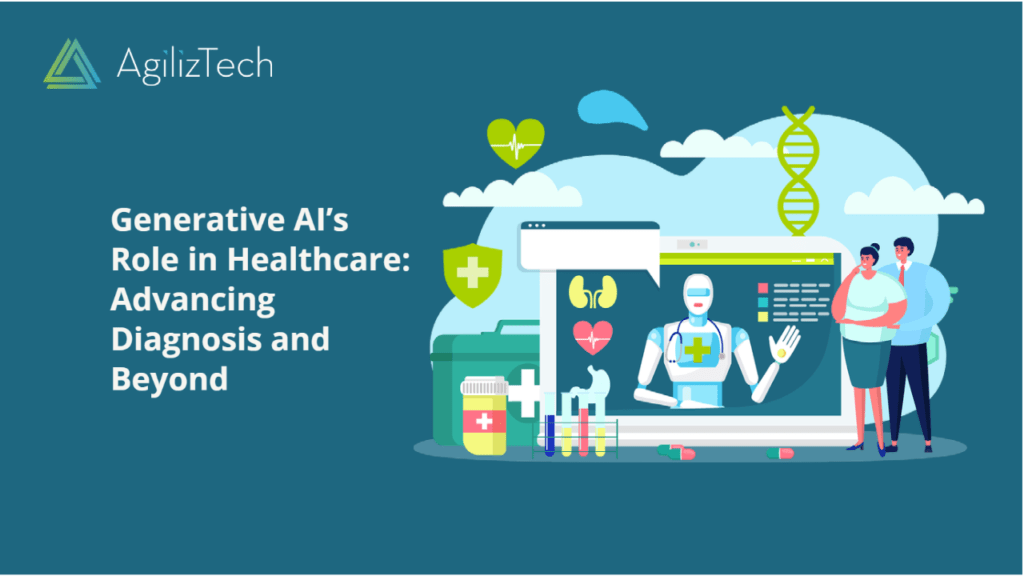
Generative AI in Healthcare: Advancing Diagnosis Efficiencies
Generative AI and Healthcare: A Match Made for Diagnosis
Introduction
In recent years, the field of Artificial Intelligence (AI) has made significant strides in transforming various industries. Moreover, one area that holds immense promise is the integration of generative AI in healthcare. By harnessing the power of generative AI, medical professionals can enhance their diagnostic capabilities, improve drug discovery processes, and even predict diseases. In this blog post, we will explore the potential of generative AI in medical imaging, drug discovery, and disease prediction.
Generative AI in Medical Imaging
Generative AI algorithms, such as generative adversarial networks (GANs), have the potential to revolutionize medical imaging. For instance, GANs can generate synthetic medical images that closely resemble real patient data, opening a range of possibilities. These include data augmentation, which can be used to augment limited datasets in areas where acquiring large and diverse datasets is challenging. Additionally, generative AI can help identify anomalies in medical images, assisting radiologists in detecting early signs of diseases or abnormalities that may be missed by the human eye alone.
Generative AI in Drug Discovery
The process of drug discovery is time-consuming, expensive, and often involves trial and error. However, generative AI techniques can significantly speed up this process and improve the chances of success. By using generative AI models, researchers can generate virtual compounds with specific properties, such as high efficacy and low toxicity. This allows for faster screening of potential drug candidates, reducing the time and cost involved in the initial stages of drug development. Furthermore, generative AI can aid in designing entirely new drugs by generating novel chemical structures that have the potential to interact with specific disease targets.
Generative AI in Disease Prediction
Early detection of diseases is crucial for effective treatment and improved patient outcomes. Generative AI can play a vital role in disease prediction by analyzing patient data and identifying patterns that may indicate the presence of certain conditions. By leveraging large datasets and generative AI models, healthcare providers can predict the likelihood of diseases like cancer, diabetes, or cardiovascular disorders. Additionally, generative AI can analyze various risk factors, including genetic, environmental, and lifestyle, to assess an individual’s susceptibility to certain diseases. This can help in implementing preventive measures and promoting healthier lifestyles.
Conclusion
In conclusion, generative AI holds immense potential to revolutionize healthcare. Healthcare professionals can enhance diagnostic accuracy, streamline drug development processes, and improve patient outcomes by harnessing its power in medical imaging, drug discovery, and disease prediction. However, it is essential to strike a balance between AI-driven automation and human expertise to ensure the highest quality of care. As the field continues to evolve, integrating generative AI in healthcare will undoubtedly bring about significant advancements, benefiting patients and medical professionals alike.
Sources:
- “Generative Adversarial Networks for Medical Imaging: A Review” – https://pubmed.ncbi.nlm.nih.gov/32433296/
- “Generative AI in Drug Discovery: A Review” – https://pubs.acs.org/doi/10.1021/acs.jmedchem.9b00959
- “Generative AI for Disease Prediction: A Review” – https://www.ncbi.nlm.nih.gov/pmc/articles/PMC7152885/


